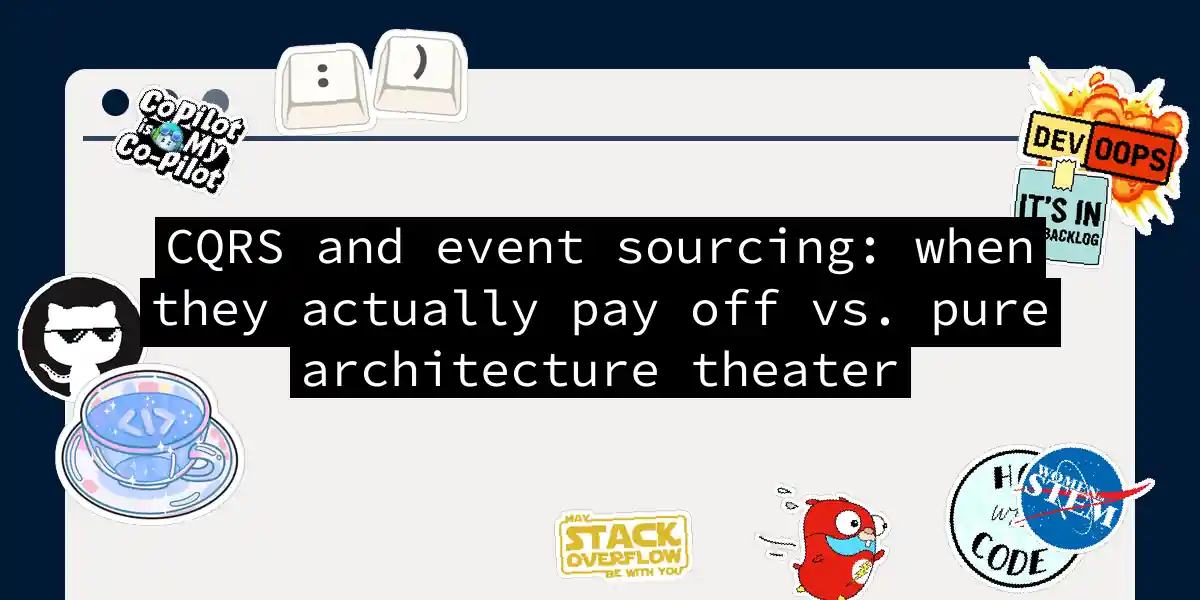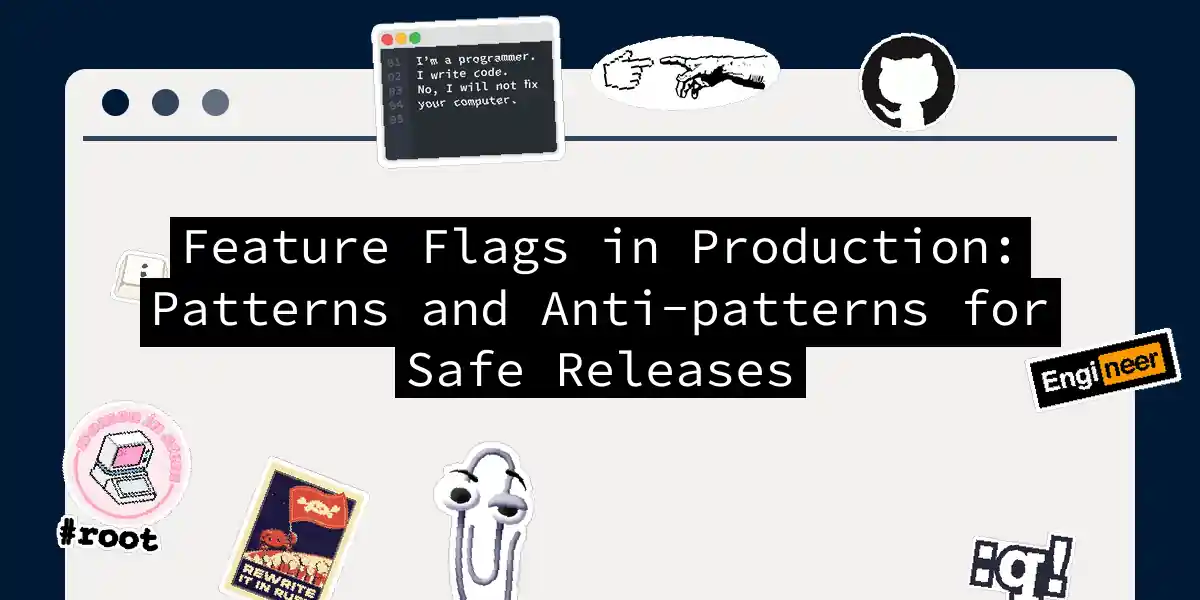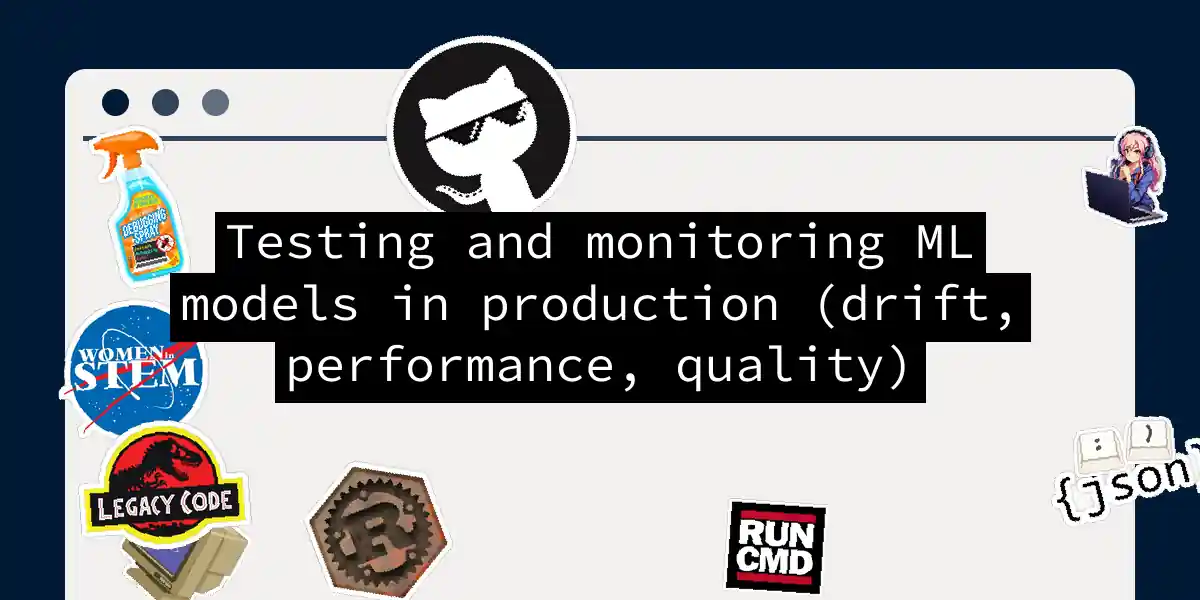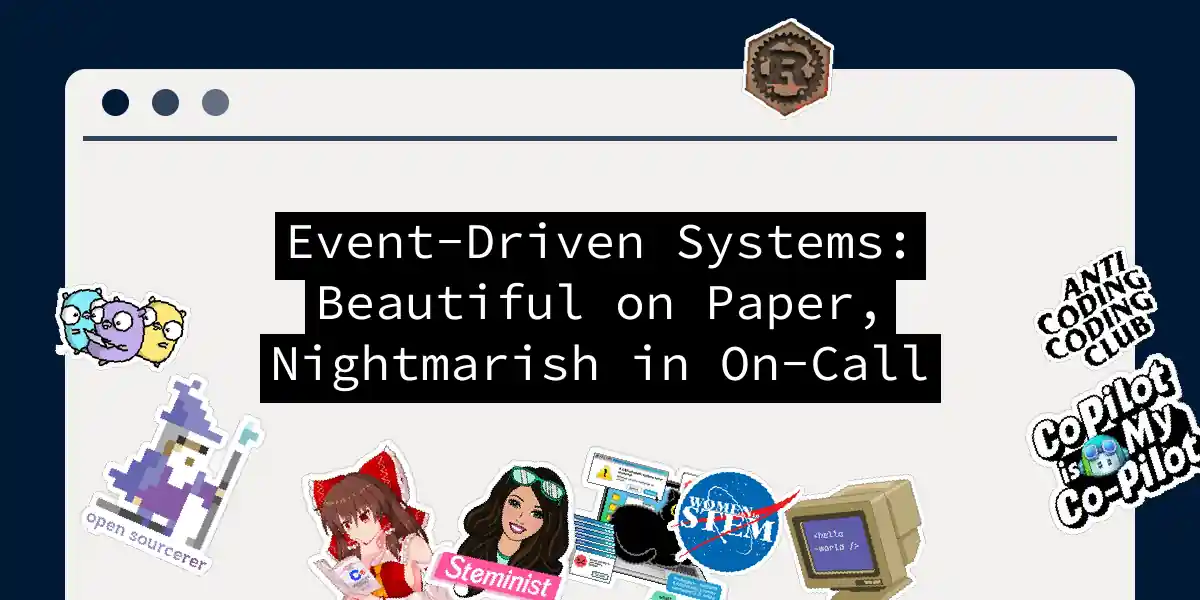
CQRS and event sourcing: when they actually pay off vs. pure architecture theater
[object Object]

[object Object]

The Great Flag Debate: Why Your Releases Need Guardrails You know that feeling when you’ve just deployed to production and suddenly realize you’ve introduced a bug that affects 10,000 users? That cold sweat moment when everyone’s staring at the Slack channel? Yeah, feature flags exist to save you from that particular brand of professional anxiety. Feature flags (also called feature toggles or feature switches) represent a fundamental shift in how we think about deployment and release....

[object Object]

[object Object]

You know that feeling when an architecture looks absolutely stunning in a whiteboard diagram? Event-driven architecture is the architectural equivalent of that girlfriend who looks incredible on Instagram but will drain your wallet, your sanity, and your sleep schedule. Don’t get me wrong—I’m not saying EDA is bad. I’m saying that what the conference talks don’t mention is that adopting EDA is essentially signing up for a master class in distributed systems debugging at 3 AM on a Sunday....